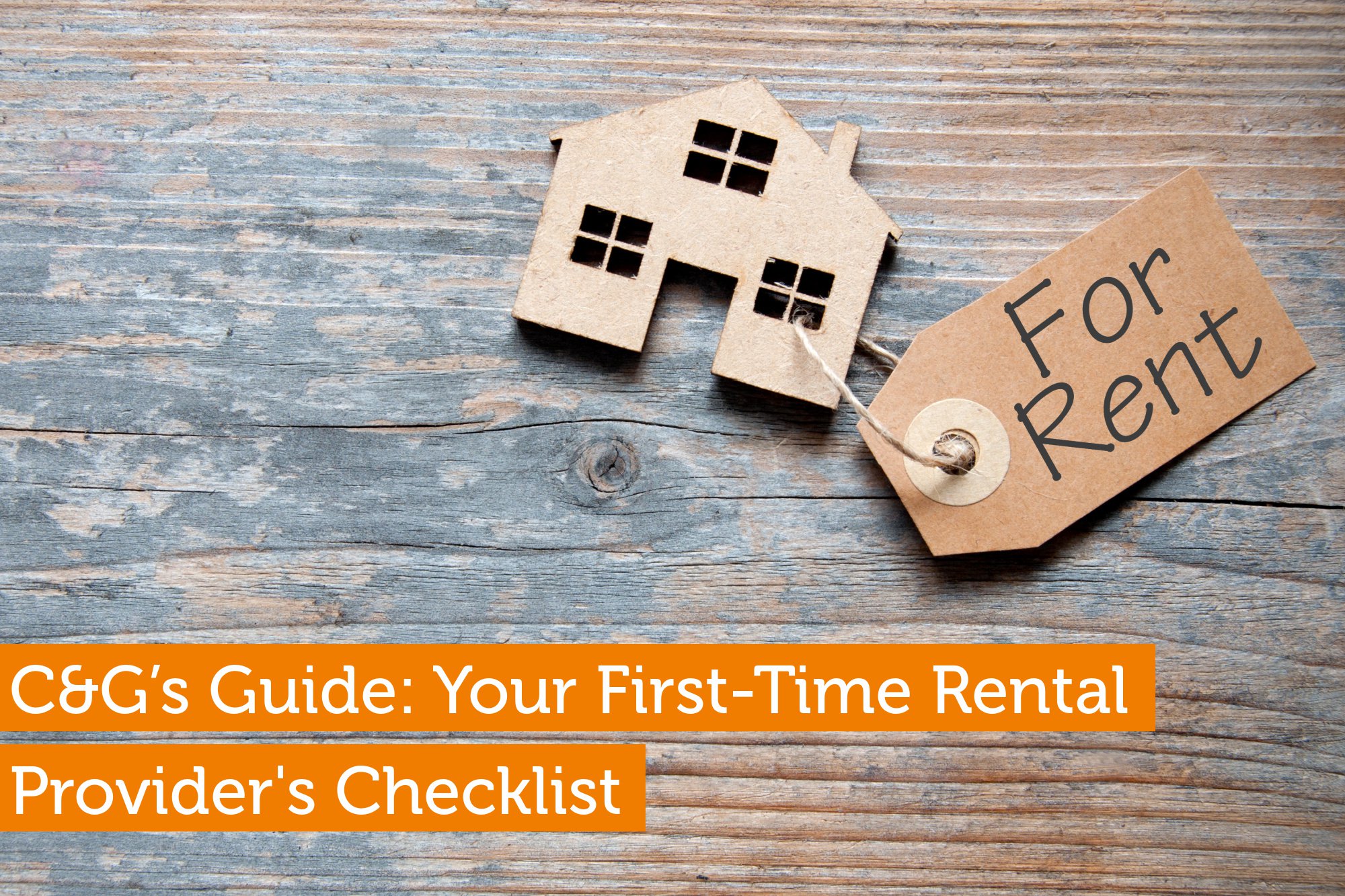C&G’s Guide: Your First-Time Rental Provider’s Checklist
Are you interested in renting your property, but aren’t sure where to start? Don’t worry, you’re not alone. Leasing a property can seem daunting if you’re unsure of the process, and it can give rise to lots of questions: should you get a property manager? How much should you charge? Who handles maintenance?
However, becoming a landlord can be a great stable form of investment and can help you generate a passive income and even create wealth for retirement.
In this C&G blog, we’ve created this useful First-Time Rental Provider Checklist, so you’ll be armed with the knowledge you need to take the next steps.
Safety Measures and Touch-Ups
As a landlord, the safety of your tenants should be a priority, which is why before allowing anyone to live in your home, it’s a good idea to perform a routine review of your property to ensure everything is up to scratch.
This will include actions such as checking the property is free from mould, ensuring that electrical switchboards are compliant with Standards Australia, and that there are no exposed cables or electrical cords.
Purchase Landlord Insurance
Being a landlord can come with risks, as you’re placing your property in the hands of others. However, by taking out landlord insurance, you’ll be able to minimise these as much as possible.
Landlord insurance can provide cover for events including the loss of rent if your tenant defaults on the rent and is evicted, if the lease is broken and rent is left owing, or if a tenant damages your property and it’s untenantable while being repaired.
It’s a good idea to compare insurance policies to see which provider will work best for your situation and property.
Understand your Tax and Legal Obligations
Lots of things change when you become a landlord, and your tax and legal obligations are no exception.
Renting out your property means you’ll have access to new tax benefits that you didn’t before—for example, you can claim damage or general wear and tear via property depreciation on your yearly return. If you haven’t already done so, it can be a good idea to consider investing in an accountant who will know how to claim the most out of your investment property when it comes to tax time.
You’ll also need to keep your property up-to-date with relevant legislation and requirements based on your state or territory’s applicable Tenancy Act.
Decide Who Will Manage Your Property
While it’s true an agent will cost you money, there’s a lot of work that goes into managing a rental property that goes on behind the scenes which may not be immediately apparent. Agents will be able to set a realistic rent, advertise and show the property to potential tenants, screen tenants who have applied for the property, arrange the lease and collect the bond and ongoing inspections and maintenance, all while liaising with you on any decisions. And this is in addition to navigating any changes regarding tenancy legislation!
If you choose to self-manage your property, you’ll need to take care of all the above - and then some. That’s why 67% of Australian landlords choose to invest in an agent, particularly if their property is located far away from where they live.
Regularly Inspect Your Property
Even if you have a property manager, it’s a good idea to regularly inspect the property yourself so you can check that the tenant is looking after the property and to allow any maintenance issues to be identified. If you can’t attend the property regularly yourself, then doing so between tenancies is at least recommended.
It’s important to remember that there are guidelines around the notice period you need to give tenants before entering the property, as well as the frequency of inspections, based on your state’s Tenancy Act.
Understand the Rules Around Rent Reviews
While a rental provider can increase the rent for their property, there are state-based rules about what they can do. For example, In Victoria, a rental provider must tell the tenant in writing that they are going to put the rent up at least 60 days in advance. It’s poignant to know that tenants can challenge the increase too, if they feel it is too high.
If you’ve got a property manager, they will be able to advise you on when a rent review will be permitted and warranted based on the market. If you’re self-managing, it’s important to make sure you understand these rules.
Looking to rent in Bayside? Contact the Bayside real estate experts at Chisholm & Gamon today!
